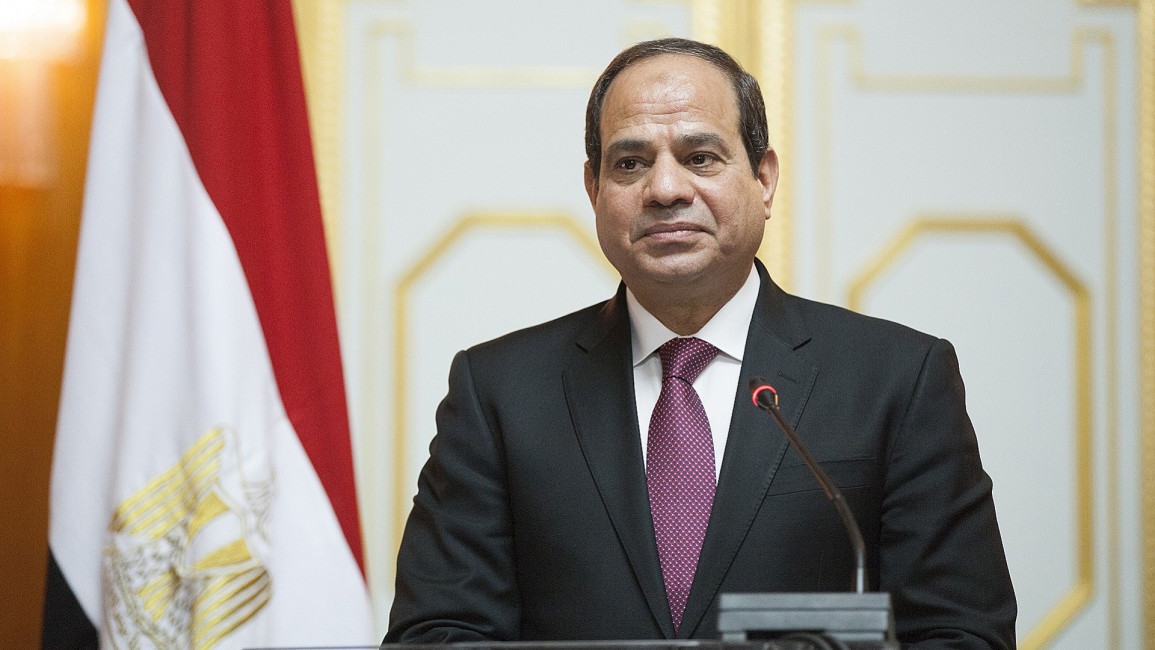Sisi warns against ‘instability’ in Egypt following protests
Egypt's President Abdel Fattah al-Sisi warned on Sunday against attempts to stoke “instability” in the country, following a recent spate of anti-government protests.
"Some people have been trying in recent weeks to take advantage of the tough measures we are taking," Sisi said at a ceremony to inaugurate an oil refining complex north of Cairo.
"They choose the hard conditions to harm and cast doubts among Egyptians over what we do."
Dozens of people took part in rare protests in recent days in several villages in Egypt, according to videos shared widely on social media.
The small-scale demonstrations come amid mounting anger, particularly in rural and low-income areas, against a government campaign to demolish homes which it says are illegally constructed. People have been required to pay fines to legalise home-ownership.
Read more: Sisi bulldozes homes with renewed disdain for Egypt’s poor
Exiled businessman-turned-activist Mohamed Ali, who has urged anti-Sisi protests since last year, has intensified his calls in recent weeks in online videos, calling on Egyptians take to the streets against the government.
During his speech, Sisi thanked Egyptians for what he characterized as their lack of response to the calls, saying the government was undertaking the building demolition campaign as part of reforms.
On Saturday, family and medical sources said a man was killed in clashes between protesters and police in a village south of Cairo.
Prominent rights lawyers also reported on Facebook the arrest hundreds of people in the demonstrations.
On Sunday, Egypt's public prosecution agency said that it ordered the release of 68 minors who took part in the demonstrations.
Protests have been effectively banned in Egypt since 2013, when the military deposed the country’s first democratically elected president, Mohammed Morsi.
Tens of thousands of dissidents have been detained since then, in conditions denounced by human rights groups.
A renewable state of emergency has been in place since 2017, a measure that rights groups say has allowed the government to further crush dissent.
Follow us on Facebook, Twitter and Instagram to stay connected


![President Pezeshkian has denounced Israel's attacks on Lebanon [Getty]](/sites/default/files/styles/image_684x385/public/2173482924.jpeg?h=a5f2f23a&itok=q3evVtko)



 Follow the Middle East's top stories in English at The New Arab on Google News
Follow the Middle East's top stories in English at The New Arab on Google News


